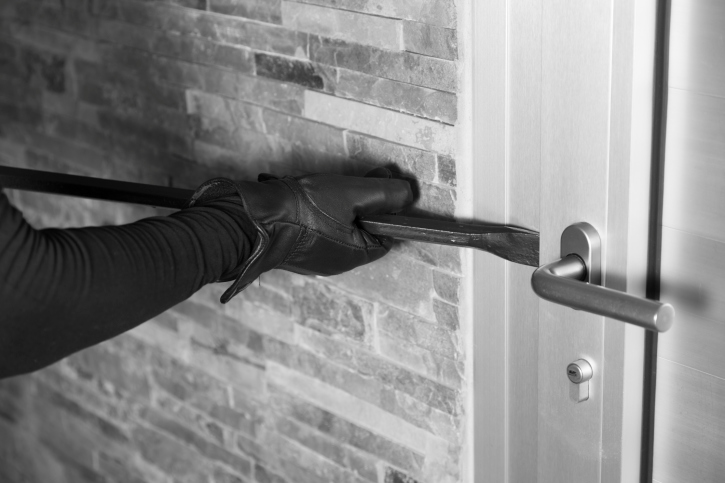 Buying a home is one of the biggest financial investments you’ll ever make, so it’s important to protect that investment in every way possible. One way to provide protection is by purchasing a home warranty. While not required, a home warranty can offer peace of mind by covering the costs of repairing or replacing essential systems and appliances in the home. Understanding the importance of a home warranty can help you decide whether it’s the right choice for you as a homeowner.
Buying a home is one of the biggest financial investments you’ll ever make, so it’s important to protect that investment in every way possible. One way to provide protection is by purchasing a home warranty. While not required, a home warranty can offer peace of mind by covering the costs of repairing or replacing essential systems and appliances in the home. Understanding the importance of a home warranty can help you decide whether it’s the right choice for you as a homeowner.
What Is a Home Warranty?
A home warranty is a service contract that covers the repair or replacement of home systems and appliances that may break down due to normal wear and tear. It typically includes items such as HVAC systems, plumbing, electrical systems, kitchen appliances, and more. Unlike homeowners insurance, which covers damage from events like fire or theft, a home warranty focuses on fixing and replacing components that simply stop working or break down over time.
Why is a Home Warranty Important?
- Financial Protection Against Unexpected Repairs
One of the biggest reasons homeowners opt for a home warranty is to protect themselves from unexpected repair costs. Household systems and appliances can fail without warning, and the cost to repair or replace them can be substantial. For example, a new air conditioning unit can cost thousands of dollars to replace. A home warranty can help mitigate these costs by covering repairs or offering replacements, saving you from having to pay out of pocket for expensive services. - Convenience and Peace of Mind
A home warranty can also provide convenience by connecting you to a network of trusted contractors and service providers. If an appliance or system breaks down, you simply contact the home warranty company, and they will coordinate the repair or replacement. This can save you time searching for reliable professionals and handling the stress of scheduling and payments. Knowing that you have coverage for potential breakdowns allows you to enjoy your home without worrying about the unexpected costs of repairs. - Increased Home Value and Appeal
For sellers, offering a home warranty can make your property more attractive to potential buyers. A home warranty can provide reassurance to buyers that they won’t be burdened with costly repairs after moving in. For buyers, the assurance of a home warranty can be a deciding factor, especially if the home is older and systems may be near the end of their lifespan. A home warranty can offer peace of mind, knowing that any major system failures will be covered. - Budgeting for Home Repairs
While home warranties do come with a cost, they can help homeowners better budget for potential repairs by providing predictable, low-cost service fees. Instead of paying large, unexpected amounts for repairs, you’ll pay an annual or monthly fee for the warranty and a small service fee when you need a repair. This can make managing the maintenance of your home easier, especially for first-time homeowners who may not have a large emergency fund set aside.
What Does a Home Warranty Typically Cover?
The coverage provided by a home warranty depends on the plan and the company, but generally, it covers:
- Major appliances: Refrigerators, dishwashers, washers, dryers, stoves, etc.
- Home systems: HVAC systems, plumbing, electrical systems, water heaters, and more.
- Optional coverage: Some home warranties offer optional add-ons to cover pools, spas, septic systems, or other unique needs.
It’s important to read the terms of the warranty carefully to understand what’s covered and what’s excluded. For example, some warranties may not cover pre-existing conditions or damages caused by neglect.
What Are the Limitations of a Home Warranty?
While a home warranty offers many benefits, it’s important to understand its limitations. First, there may be exclusions, such as coverage for damage caused by improper maintenance or misuse. Additionally, a home warranty may only cover specific models or brands of appliances or systems, so it’s important to confirm that the items in your home are eligible for coverage.
Another consideration is the service fee that must be paid each time you request a repair. This fee can range from $50 to $100 or more, and while it’s often lower than the cost of a repair, it can add up over time if you need multiple services. Additionally, if a repair is not covered by the warranty or is deemed too expensive to repair, you may still be responsible for the full cost of a replacement.
A home warranty can be a valuable tool for homeowners looking to protect their investment and avoid the financial strain of unexpected repairs. By covering the cost of repairs and replacements for essential home systems and appliances, a home warranty provides peace of mind and convenience. Whether you’re buying a new home, selling a property, or simply want added protection, understanding the importance of a home warranty can help you make an informed decision about safeguarding your home.
 One of the most important overlooked form of insurance for homeowners is Flood Insurance. Flood damage is not covered on a typical homeowners insurance policy. Although sometimes FEMA (the Federal Emergency Management Agency) provides help for victims of flood damage, it does not provide coverage for personal property, and is often defined as a loan and must be repaid.
One of the most important overlooked form of insurance for homeowners is Flood Insurance. Flood damage is not covered on a typical homeowners insurance policy. Although sometimes FEMA (the Federal Emergency Management Agency) provides help for victims of flood damage, it does not provide coverage for personal property, and is often defined as a loan and must be repaid. Living with pets brings endless joy, but it can also mean dealing with a few challenges, especially when it comes to protecting your furniture and home from potential damage. Whether you have a playful pup or an energetic cat, pet-proofing your living space is essential to keeping both your pet and your home in good shape. Here are seven practical tips to help you protect your floors, furniture, and belongings from pet mishaps.
Living with pets brings endless joy, but it can also mean dealing with a few challenges, especially when it comes to protecting your furniture and home from potential damage. Whether you have a playful pup or an energetic cat, pet-proofing your living space is essential to keeping both your pet and your home in good shape. Here are seven practical tips to help you protect your floors, furniture, and belongings from pet mishaps. When making plans for a fun-filled vacation, you shouldn’t forget implementing certain home security measures to ward off thieves. Nobody wants to return home only to find that intruders had ransacked the residence from top to bottom.
When making plans for a fun-filled vacation, you shouldn’t forget implementing certain home security measures to ward off thieves. Nobody wants to return home only to find that intruders had ransacked the residence from top to bottom.